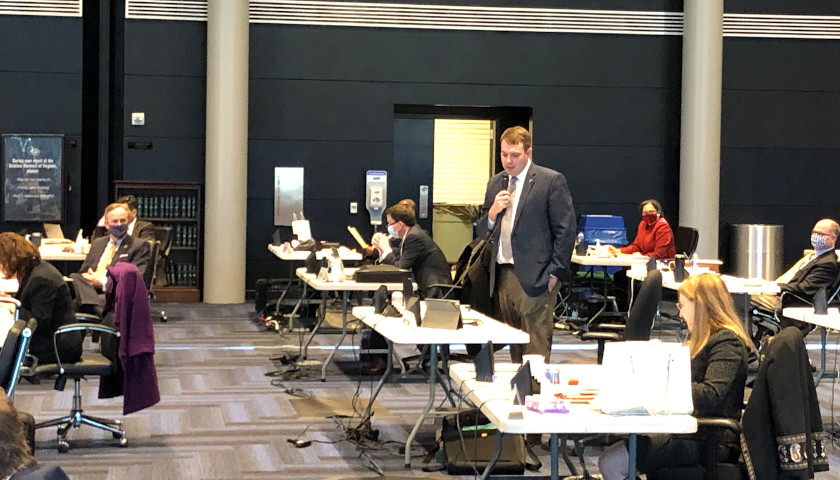Legislation to abolish the death penalty in the Commonwealth of Virginia was advanced out of the Senate Judiciary Committee on Monday morning.
Introduced by Sen. Scott Surovell (D-Fairfax), Senate Bill 1165 was reported out of the committee by a vote of 10-4, mostly along party lines with Sen. Bill Stanley (R-Franklin County), chief co-patron on the measure, the only Republican who voted in support.
While speaking to committee members on the legislation, Surovell outlined six main problems he has with the death penalty. Among those points were the instances of innocent people being executed, equity, $3.9 million in annual state spending on the capital offenders service as well as other costs, and that the lethal injection cocktail is “abhorrent.”
Specifically, the bill changes the maximum penalty for a crime to life in prison with no eligibility for parole, earned sentence credits from good behavior or conditional release. The legislation also commutes the sentences of people who are currently in prison for capital murder from crimes committed before July 1st, 2021, to a life sentence instead.
“You see since I came here ten or 11 years ago, I’ve held the principle that the death penalty was an archaic system of punishment in the judicial system of Virginia, and so I’ve always been against it based on my faith and also because I am pro-life,” Stanley told The Virginia Star.
During the public comment portion, proponents of the bill argued the death penalty is immoral, racist, outdated and can result in wrongful deaths.
Those people included representatives from the Virginia Association of Criminal Defense Lawyers, League of Women Voters of Virginia, Innocence Project at University of Virginia’s Law School, faith and religious organizations and counsel to Governor Ralph Northam, who pushed for this during his annual State of the Commonwealth address last week.
James Hingeley, Albemarle County Commonwealth’s Attorney, who served as a criminal defense lawyer for 44 years and represented four individuals charged with capital murder as lead counsel, spoke in favor of the bill.
Also advocating for abolition was Rachel Sutphin, daughter of Eric Sutphin from the Montgomery County Sheriff’s Office, who was shot and killed in 2006.
“I speak in support of this bill because I believe the death penalty is an ineffective and outdated measure that brings no solace to family members,” Sutphin said. “The state would better spend their time and their money providing resources for my family versus killing another person.”
For the legislation’s opponents, most of the arguments centered around keeping the death penalty for people who murder law enforcement.
Wayne Huggins, executive director of the Virginia State Police Association, told the committee the group “categorically oppose[s] this bill.” Huggins brought up the 2017 murder of Virginia State Police special agent Michael Walters, who was shot and killed in Richmond and argued against the bill by highlighting that the killer was sentenced to capital murder, but only received only 36 years in prison.
Former state Sen. Bill Carrico echoed Huggins comments and asked the committee to consider an amendment that would allow for people who murder law enforcement officers to still be able to receive the death penalty.
“If you do go down this road, at least put a provision that law enforcement are not out there alone and that their families don’t have to feel like this,” Carrico said. “That their families can feel like you have their backs and anybody [who] takes that attack out on law enforcement the penalty is going to be death, because it would just make an open season on law enforcement if we don’t do something.”
One of the last people to speak against abolition was Michelle Dermyer, the widow of Virginia State Police trooper Chad Phillip Dermyer, who was shot and killed at a Richmond City bus station in 2016. Dermyer said she thought that the decision of whether or not to seek the death penalty should be left to the victim’s family.
For now, SB 1165 has been referred to the Senate Finance and Appropriations Committee where the bill’s fiscal impact will be considered before potentially moving to the floor. The legislation is still waiting to be discussed by the money committee.
– – –
Jacob Taylor is a reporter at The Virginia Star and the Star News Digital Network. Follow Jacob on Twitter. Email tips to [email protected]




